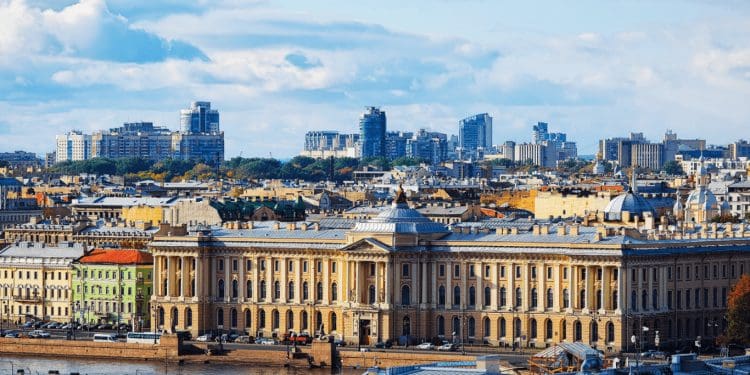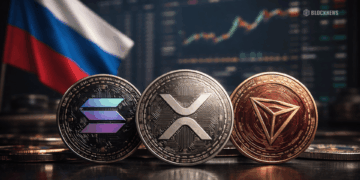If the Finance Ministry and the central bank say “yes,” a “national crypto exchange in Russia” may become a reality.
Local Media Reports
The State Duma began drafting an amendment to create a national cryptocurrency exchange in Russia. In the middle of November, the deputies discussed the necessary changes to the law “On Digital Financial Assets” with market participants. A meeting participant backed up the details that a State Duma-connected source told the regional media. One of the attendees brought up the absence of the two regulatory bodies for the company, the Central Bank and the Ministry of Finance, from the meeting. The plan, he continued, was first to draft a paper while taking the state of the market into account, present it to the government and the Bank of Russia for discussion, and finally, finalize the report.
A member of the Economic Policy Committee named Sergey Altukhov told the Russian media that work has begun on a draft amendment that would permit the establishment of a crypto-exchange within Russian territory (United Russia). “It is illegal to claim that cryptocurrencies do not exist, but the issue is that they are widely distributed without governmental oversight. These are lost tax earnings to the budget amounting to billions of rubles,” he noted.
According to Altukhov, conditions must be established for the legalization of cryptocurrencies, and the “rules of the game” must be adjusted so that they do not conflict with the Central Bank’s and the government’s official positions. According to Altukhov, the deputies discuss the action algorithm and “reinforced concrete” justifications for regulators.
Russia’s Potential Crypto Move
A local source claims that the State Duma intends to amend the law “On digital financial assets” in a few ways that may facilitate creating a “national crypto exchange in Russia.” The MPs previously spoke about the plan with market participants in the middle of November. The Ministry of Finance and the nation’s central bank must approve the platform.
Sergey Altuhov, a State Duma’s Committee on Economic Policy member, confirmed the claims and recommended that the country with the largest landmass adopt the digital asset market. He believes that “The absence of regulations is the biggest problem facing the sector. Cryptocurrencies are traded without any governmental control. The federal government has lost billions in tax revenue because of these missing tax payments.”
In June, State Duma official Anatoly Aksakov suggested that Russia might introduce a cryptocurrency platform based on the standards of the Moscow Exchange. He stated that “the existence of such a trading platform should only be permitted under strict supervision by the central bank. And I believe that this division, which will operate within the parameters of a reputable organization with a rich history and a history of engaging in active communication with the central bank, will be the most adept at handling the responsibility of managing cryptocurrency operations.”
The Moscow Exchange created legislation for the Bank of Russia that would permit digital financial assets (DFAs) trade.
The ‘National Crypto Exchange’ Needs an Approval
Members from the Ministry of Finance and the central bank did not attend the state Duma meeting with market participants. For the entities to be aware of the proposal and assess their position, the lower house of parliament plans to draft a paper and address it to them.
The platform can only be created with the approval of the Bank of Russia and the Finance Ministry. The financial institution has repeatedly expressed disapproval of the digital asset market and encouraged the Russian government to outlaw any cryptocurrency-related activities there. The Ministry hasn’t been particularly hostile, asserting that implementing regulations is preferable to prohibitions like China.
Conclusion
Earlier this month, a law permitting cryptocurrency mining and the sale of the generated cash was introduced to the Duma. Local miners could use foreign platforms at their discretion, but the law will establish a Russian platform for bitcoin sales. In the latter case, transactions would not be governed by Russian currency controls or regulations but would still need to Qbe reported to the Russian tax authority.














